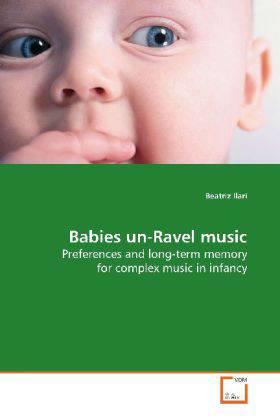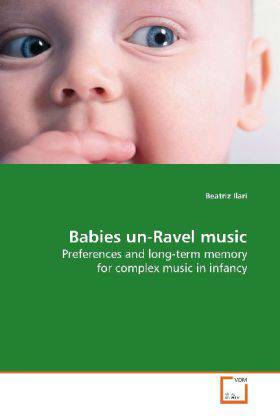
Door een staking bij bpost kan je online bestelling op dit moment iets langer onderweg zijn dan voorzien. Dringend iets nodig? Onze winkels ontvangen jou met open armen!
- Afhalen na 1 uur in een winkel met voorraad
- Gratis thuislevering in België vanaf € 30
- Ruim aanbod met 7 miljoen producten
Door een staking bij bpost kan je online bestelling op dit moment iets langer onderweg zijn dan voorzien. Dringend iets nodig? Onze winkels ontvangen jou met open armen!
- Afhalen na 1 uur in een winkel met voorraad
- Gratis thuislevering in België vanaf € 30
- Ruim aanbod met 7 miljoen producten
Zoeken
Omschrijving
This book is based on a PhD thesis that investigated infants' preferences and long-term memory for two contrasting two complex pieces of music (Prelude and Forlane) from the suite Le Tombeau de Couperin by Maurice Ravel (1875- 1937). A group of 8.5-month-old infants was randomly assigned to one of four experiments conducted on the Headturn Preference Procedure. The first three experiments examined infants' preferences for the Prelude and the Forlane in piano and orchestral timbres, and the fourth one aimed at infants' long- term memory for complex music. For this experiment, thirty infants were exposed to either the Prelude or the Forlane three times a day for ten consecutive days. Two weeks following the exposure, infants were tested on the HPP. Contrary to the belief that infants are ill equipped to process complex music, this study found that infants could discriminate, encode and recall the two Ravel pieces for at least two weeks. Implications for early childhood music education and for future studies are outlined at the end of the book.
Specificaties
Betrokkenen
- Auteur(s):
- Uitgeverij:
Inhoud
- Aantal bladzijden:
- 148
- Taal:
- Engels
Eigenschappen
- Productcode (EAN):
- 9783639160796
- Verschijningsdatum:
- 14/06/2009
- Uitvoering:
- Paperback
- Formaat:
- Trade paperback (VS)
- Afmetingen:
- 152 mm x 229 mm
- Gewicht:
- 226 g

Alleen bij Standaard Boekhandel
+ 116 punten op je klantenkaart van Standaard Boekhandel
Beoordelingen
We publiceren alleen reviews die voldoen aan de voorwaarden voor reviews. Bekijk onze voorwaarden voor reviews.











